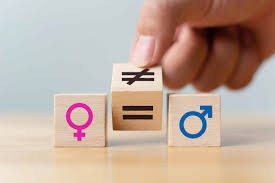Ghana scores 50 out of 100 in Women’s pay indicator, measuring the legislation on remuneration and job restrictions— factors likely to influence a woman’s decision to enter the workforce and her choice of career. This reflects little improvement in the implementation of laws and regulations that affect women’s pay, comparing the new score to that of the previous year.
According to the Women, Business and Law report 2021, the Women’s pay indicator is among a list of eight set of indicators that affect women through their working lives— mobility, workplace, pay, marriage, parenthood, entrepreneurship, assets and pension.
Overall, however, Ghana scored 75/100 in the women, business and law index of 2021, only four points above the sub-Sahara African average (71/100) and a point below the world score of 76 out of 100. Still, this score is the same as was recorded in the index of 2020. Most likely, the Covid-19 crisis may have been a reason for stalling progress in implementing laws towards reducing discrimination of women in all forms, especially in terms of their economic empowerment.

Clearly, the Covid-19 pandemic has exacerbated the vulnerabilities and inequalities against women, as most women have lost their jobs as a result. Accordingly, job loss rates by women due to COVID-19 was 1.8 times more than the job loss rates of men. Albeit, research has shown that reducing gender inequality accelerates economic growth, competitiveness and readiness for the future.
On the other indicators, Ghana scored a perfect score (100%) on three of the indicators; mobility (women’s freedom of movement), workplace (laws affecting women’s decisions to work) and marriage (legal constraints relating to marriage) and also scored as low as 20% on parenthood (laws affecting women’s work after having children).
Tracing this issue with a global lens demands a critical look at Goal 5 of the SDGs. The SDG Goal 5 resonates a global commitment to achieve gender equality by 2030. According to a UNDP report, ending all discrimination against women is not only a basic right, but crucial for a sustainable future.
While this target is by far quite optimistic, yet, given current efforts, the target seems to be light years afar off and the COVID-19 pandemic has also markedly regressed gains made so far, over the years. According to a report from the Institute for Women’s Policy Research, at the current rate, women will not see equal wages until 2059.
The Women, Business and Law report 2021 measures how laws and regulations impact the economic outcomes, opportunities and empowerment in 190 economies. Based on this year’s edition, the index covers reforms conducted between September 2019 and October 2020.
“The index analyzes economic rights during different milestones in a woman’s working life through eight indicators ranging from being able to move freely to rights in the workplace, through rights during marriage and after having children, how the law prevents or allows them to run their own businesses and manage assets all the way to retirement.”
READ ALSO: Ghana ranks 5th among top ten African economies in UNCTAD E-commerce Index 2020























